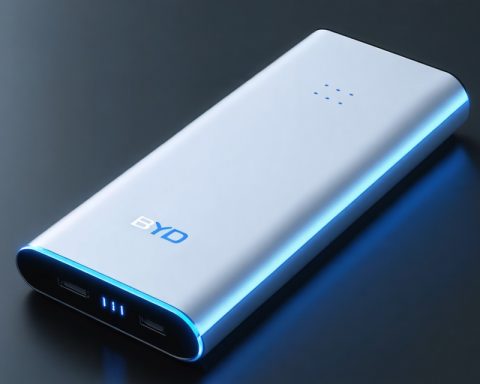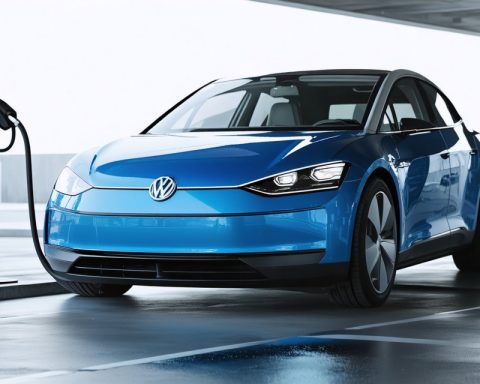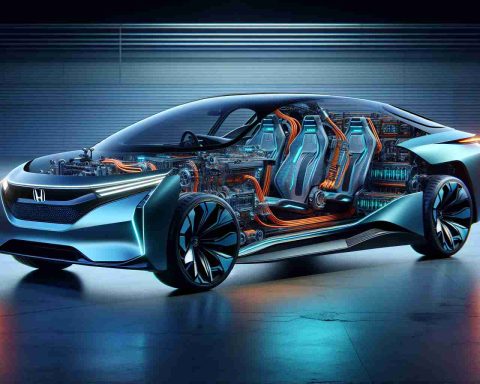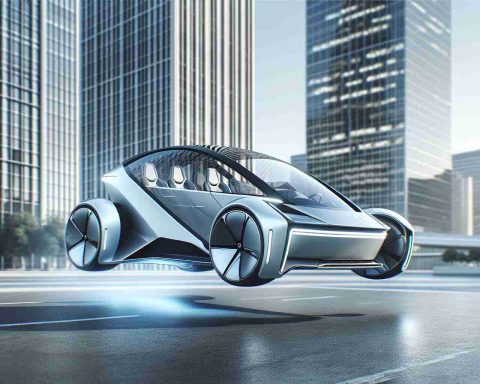- Bob Porter, a longtime electric vehicle enthusiast, finds his Tesla Model 3 entangled in political debates due to Elon Musk’s controversial persona.
- Musk’s growing political involvement impacts Tesla’s image, causing discomfort among owners who face judgments based on the brand’s association with him.
- Anti-Musk sentiment is on the rise, as evidenced by recent vandalism at a Vancouver Tesla dealership, reflecting public frustration.
- Some potential buyers are hesitant to choose Tesla amid the backlash, signaling a possible slowdown in Tesla’s market momentum.
- Competitors are catching up, offering new alternatives as the electric vehicle landscape evolves.
- The situation raises a critical question about the separation of a brand from its leader and its impact on the electric vehicle movement’s progress.
Bob Porter, an ardent advocate for eco-friendly driving, once lauded his Tesla Model 3 as a beacon of cutting-edge innovation. An electric vehicle aficionado for more than a decade, Porter’s choice was driven by Tesla’s superior technology at the time. But now, as he navigates the streets of Vancouver, he can’t shake the feeling that his car has become a flashing symbol in a heated political debate.
Tesla’s outspoken CEO, Elon Musk, casts a long shadow, increasingly becoming intertwined with political discourse. Many Tesla owners like Porter find themselves uncomfortably in the spotlight, facing misguided judgments based solely on the badge on their vehicle’s hood. Despite owning a bumper sticker playfully disavowing Musk’s recent antics, Porter knows firsthand that people associate the car with Musk’s polarizing persona.
Recently, anti-Musk sentiment bubbled over into vandalism at a local Tesla dealership, with graffiti reflecting growing public frustration. Vancouver police are investigating, while online communities buzz with divided opinions, attracting thousands of views and comments.
Some believe the disdain for Musk could slow Tesla’s momentum, as an EV advocate notes potential buyers shying away from the brand amid the backlash. Additionally, the auto industry braces for change as competitors catch up and offer enticing alternatives.
Yet, the debate over Musk’s influence highlights a broader issue—the fragile trajectory of the electric vehicle movement. As apprehension mounts, the progress toward greener roads risks stalling, caught in a whirlwind of public opinion and diminishing incentives.
The green revolution may not have a single face, but Tesla’s story underscores a significant question: Can we separate a visionary brand from its controversial leader? As the automotive landscape evolves, the answer may steer future roads in unexpected directions.
Is Tesla’s Future Unraveling Due to Musk’s Growing Paradox?
Analyzing the Tesla Conundrum: Does Elon Musk’s Persona Hurt the Green Agenda?
Tesla’s journey from an electric vehicle pioneer to a polarizing brand caught in political crossfire poses intriguing questions about the symbiosis of visionary leadership and brand identity. Here, we’ll unravel various angles impacted by this dynamic, including real-world use cases, market forecasts, security aspects, and how Tesla’s position could evolve.
How-To Steps & Life Hacks for Navigating Tesla Ownership
1. Stay Informed and Updated: Keep abreast of changes in Tesla’s software updates, recalls, and feature enhancements. Download the Tesla mobile app to stay connected with your vehicle’s status.
2. Discreet Branding: For those concerned about the Tesla brand association, consider using creative bumper stickers or car wraps that personalize your vehicle while subtly deemphasizing the Tesla logo.
3. Engage in Community: Join local EV or automotive communities both online and in-person to share experiences, tips, and support on maintaining and maximizing your Tesla’s efficiency.
Real-World Use Cases: Beyond the Brand
Despite the controversy, Tesla vehicles still offer practical applications for users:
– Long-Distance Travel: Tesla’s Supercharger network remains one of the most extensive, facilitating convenient long-distance travel for EV owners (source: Tesla website).
– Urban Driving: In cities like Vancouver, the Model 3’s eco-friendly credentials and autonomous capabilities fit perfectly with smart city initiatives focused on reducing emissions.
Market Forecasts & Industry Trends
The electric vehicle industry is rapidly evolving, with significant trends affecting Tesla’s market position:
– Competitive Edge Erosion: As competitors like Rivian, Lucid Motors, and traditional automakers like Ford and VW accelerate their EV offerings, Tesla must innovate to maintain dominance (source: BloombergNEF).
– Political Sentiment Impacting Sales: The backlash against Elon Musk is perceived to potentially deter EV sales, shifting interest toward other brands seen as neutral or less controversial.
Pros & Cons Overview
Pros:
– Cutting-edge technology and autonomous driving features.
– Extensive charging infrastructure facilitating long-distance travel.
– Continual over-the-air updates offering new capabilities.
Cons:
– Polarizing association with Elon Musk, affecting public perception.
– Competition growing, offering similar features at competitive prices.
– Concerns about long-term sustainability and rare materials used in battery production.
Insights & Predictions: What Lies Ahead?
– Diversification Needed: Tesla may need to broaden its leadership spotlight and further decouple the brand from Musk to sustain its consumer base and continue attracting new buyers.
– Green Incentives Expansion: Policymakers must reinforce or extend incentives for EV purchases to maintain the electric vehicle momentum amidst Tesla’s current PR challenges.
Security & Sustainability Considerations
Tesla’s commitment to energy efficiency must match advancements in security. Measures like ensuring software vulnerabilities are promptly addressed are critical to maintaining trust.
Actionable Recommendations
1. Focus on Product Experience: Emphasize the unparalleled driving experience and technological prowess to potential buyers rather than the brand narrative.
2. Cultivate Brand Ambassadors: Encourage satisfied customers to become public advocates for the product’s merits, perhaps focusing on environmental benefits rather than brand allegiance.
3. Supportive Infrastructure: Continue investing in the charging infrastructure to maintain a competitive advantage over other EV manufacturers.
For readers seeking further information, consider exploring Tesla’s official website for detailed specs, updates, and news from the company.
Take these insights as tools to navigate the complexities of Tesla ownership and the broader EV landscape as it steers towards a sustainable future amidst evolving public sentiment.
















